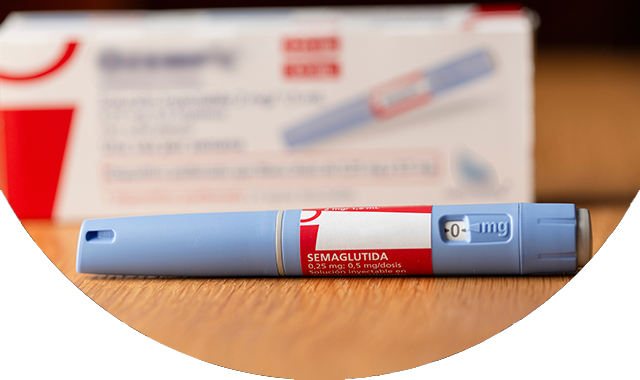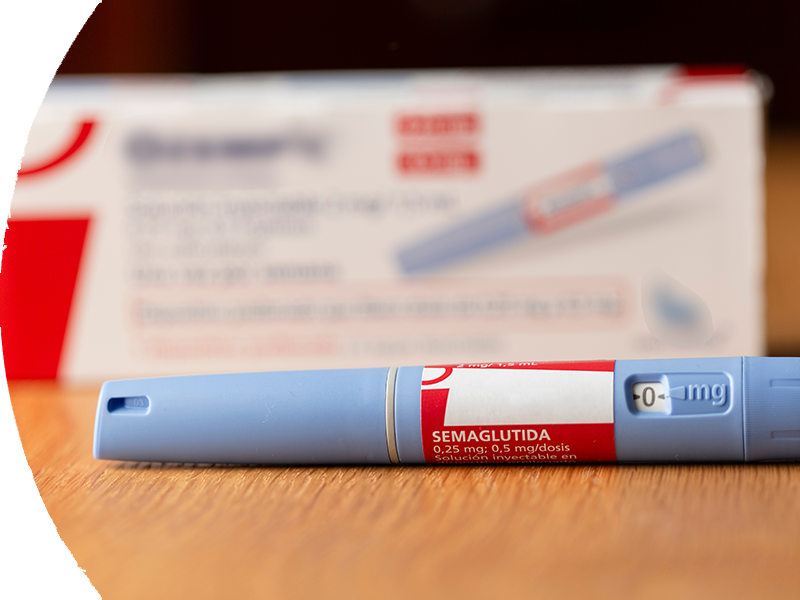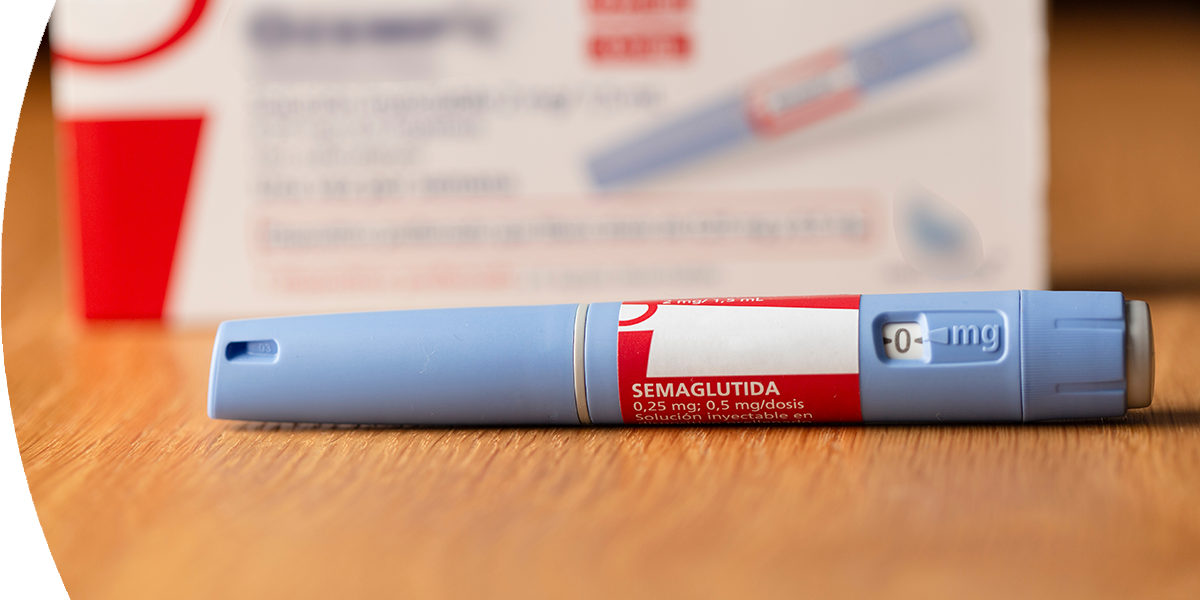





Glucagon-like peptide-1 receptor agonists (aka GLP-1 drugs) are medications that are approved as treatments for type 2 diabetes and – in some cases – for chronic weight management.
Among the GLP-1 drugs growing in popularity are Ozempic, Rybelsus, and Wegovy (all of which contain semaglutide), Victoza and Saxenda (both containing liraglutide), Trulicity (dulaglutide), and Mounjaro (tirzepatide).
GLP-1 drugs have recently been linked by regulators to significant health and safety concerns, and the Health Canada-approved product monograph for Ozempic has been revised to add warnings about gastrointestinal harms and gallbladder disease.
For years, scientific studies have showed a link between the GLP-1 drugs and increased risks of serious gallbladder-related diseases and gastrointestinal issues, including:
“Gastroparesis (aka stomach paralysis) puts people in a position where their stomach’s incapable of performing the mechanism of action that allows them to properly digest food. So, it’s quite debilitating,” says Jill McCartney, a partner at Siskinds. “Other people have had very serious gallbladder disease issues, and those can progress as far, so people have to have surgery to have their gallbladder out.”
Despite the scientific evidence, when Ozempic was first sold in Canada, the Product Monograph lacked sufficient information dangerous gastrointestinal and gallbladder side effects. As a result, Canadians were not aware of the serious health risks inherent with semaglutide products.
“It wasn’t communicated to them, or they didn’t appreciate that they could have the level of gastrointestinal or gallbladder disease issues that they’ve experienced,” says Ms. McCartney.
By 2023, just five years after Ozempic hit the market, Health Canada had received over 1,000 adverse reaction reports involving Ozempic. And by that point, over 10,000 adverse events associated with Ozempic had been reported to the United States Food and Drug Association.
Around the same time, Siskinds began receiving inquiries from Canadians about Ozempic.
“The firm has heard both from patients who were using it for weight loss and from those who were prescribed the drug for its intended purpose of managing diabetes,” says Jill McCartney. “We can get people that have permanent injury, where they might have permanent stomach paralysis or permanent removal of their gallbladder.”
However, in September 2023, the “Serious Warnings and Precautions” in the Canadian Product Monographs for semaglutide products contained no reference to gallbladder issues or gastrointestinal issues whatsoever. And, the general “Warnings and Precautions” sections for doctors also made no mention of gastroparesis.
“In terms of the gastrointestinal issues, there are things that are missing and there are things that are not described in sufficient detail,” Ms. McCartney says.
On October 6, 2023, Siskinds LLP filed a proposed GLP-1 drug class action in the Supreme Court of British Columbia against Novo Nordisk and affiliated entities on behalf of persons in Canada who were prescribed and used Ozempic, Rybelsus, and/or Wegovy and suffered serious injuries.
“It’s filed as a national class on behalf of all Canadians that have taken Ozempic,” Jill McCartney says.
The claim alleges that the Defendants’ were negligence in the development of their semaglutide products and failed to warn doctors and patients of the significant medical risks associated with the weight loss drugs.
“Part of manufacturing a drug is there’s a duty to warn of the risks,” says Ms. McCartney “The manufacturer failed to adequately warn about the risks associated with taking the drug,”
Siskinds is also representing individual Canadians who have been diagnosed with serious injuries after use of prescription GLP-1 drugs, as well as estates of Canadians who have passed away.
On November 6, 2023, Siskinds Desmeules filed a proposed class action lawsuit in the Superior Court of Quebec on behalf of persons in Quebec who used Ozempic or Rybelsus and suffered injuries.
On July 22, 2024, the Superior Court of Quebec delivered a judgment authorizing a stay (i.e. “pause”) of the proposed class action in Quebec pending the outcome of the action in British Columbia (BC).
At present, the BC case has yet to reach the certification hearing stage, where the court determines whether the action can properly be pursued as a class action.
“The BC lawsuit is currently going through the court system to get certified,” Jill McCartney says. “In the meantime, we’re getting contacted by different Canadians who have taken the drug and suffered injury or harm.”
Patients and health care providers rely on the information provided by pharmaceutical companies regarding the serious risks associated with use of any medications, such as GLP-1 drugs. Where those health risks are not disclosed, the results can be devastating – patients can experience serious injuries that could have been avoided if only they had known of the GLP-1 drug side effects.
“For any type of drug that’s on the market, of course there’s a risk benefit profile,” says Jill McCartney. “I think the heart of this case is certainly more about appropriate and adequate consent communication to health care providers and patients.”
Siskinds can help victims of serious effects from GLP-1 drugs. If you or a member of your family has suffered injuries or complications from Ozempic or other GLP-1 drugs, our pharmaceutical litigation and class action team is available to try to assist you.
Email us at [email protected], or contact us by phone at 1.800.461.6166 for a free consultation to join the GLP-1 drugs lawsuit.
Visit the Ozempic and other GLP Drugs class action page and click the join button to subscribe to our database and receive all updates and notices regarding this class action.